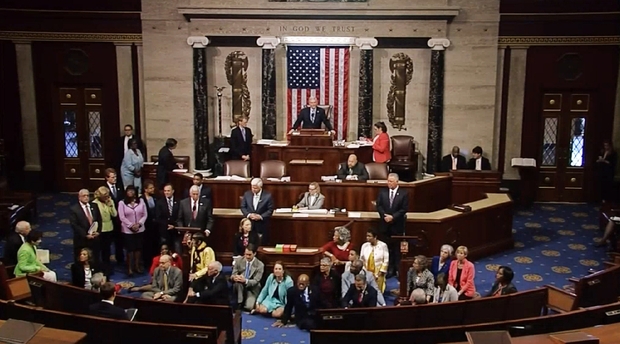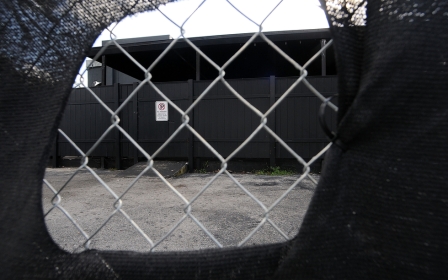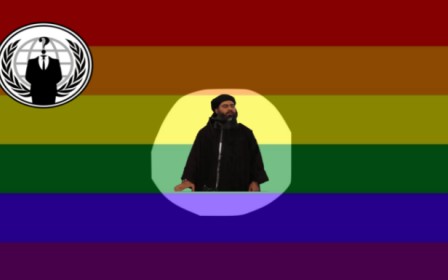Terrorists win when America loses its mind

Last week in unprecedented scenes, Democratic members of Congress adopted the tactics of the Civil Rights Movement with a sit-down protest over America's gun laws that allow the deranged and dangerous to buy assault weapons like candies and make massacres like Orlando an almost routine occurrence.
Despite the marathon session to try to force the Republican-majority Congress to pass stricter gun control, America's defenders of freedom refused to take action to prevent another Orlando. In their perverse universe, the "right" of the likes of Omar Mateen, the disturbed Orlando shooter, to buy automatic weapons and massacre 49 LGBT people enjoying a night out among friends, is considered more important than the right of millions of Americans not be slaughtered.
However these same politicians, to whom the right to bear arms is of a higher order than the right to life, are more than happy to do away with the freedoms of Muslim Americans. There have been more than 1,000 mass shootings in America since Sandy Hook in December 2012, yet despite the fact only three of these massacres were carried out by Muslims, it would appear laws relating to violence change only when the perpetrator is a Muslim.
On 14 June, New York became the first US state to consecutively pass legislation creating a Terrorist Registry. If you don’t know what that means, think of a registry for sex offenders but for terrorists.
“Howdy, neighbour. My name is John Smith and I’m a registered terrorist,” is presumably what lawmakers in the great state of New York have in mind.
So, instead of seeking martyrdom, jihadists are now seeking friendly neighbourly relations. I mean, who knew? Apparently NY Senator Thomas Croci (R-Sayville) did!
“CNN reported last year that FBI Director James Comey asked state and local law enforcement to help the FBI keep tabs on hundreds of individuals. We must give our police and law enforcement agencies every tool we can. We should know if the person living next door is a convicted terrorist,” said Senator Croci. “The deterioration of the security situation overseas and the growing number of attacks at home, including the barbaric attack this week in Orlando, it is clear we are under attack. Law enforcement and New Yorkers are not being unreasonable in demanding convicted terrorists be registered.”
Firstly – a “convicted terrorist” is an individual who has either been found guilty of carrying out or plotting a terrorist attack. Given that the perpetrator of the Boston Marathon bombings, Dzhokhar Tsarnaev, has a date with a US federal executioner, and Umar Farouk Abdulmutallab, who tried to bring down Northwest flight 253 with a bomb sewn into his underwear over Detroit on Christmas Day, 2009, has been sentenced to life in prison without parole, it would appear New York state has found a solution to another problem that doesn’t exist. Presumably made in haste to sate a public that has become ever fearful of an overstated and overblown terrorist threat.
Issues of racism and ethnic profiling aside, this bill does nothing to mitigate any perceived terrorist threat. The Orlando shooting and the failure of a bill that would’ve banned those on no-fly lists and terrorist watch lists from buying a gun make clear that databases and lists of those who might carry out a terrorist attack should be made narrower, not broader.
Who's threatening our way of life?
Terrorism has any number of political objectives but not least is to usurp the democratic political order. Terrorists seek to threaten our institutions, norms and laws via the use of spectacular violence. But terrorists cannot change the civic status quo; only governments can do that.
In this sense, it’s not groups like the Islamic State (IS), but democratically elected legislators that threaten not only civil liberties but also our way of life. To that end, the primary goal of counter-terrorism should be, must be, to protect the very institutions, norms and laws terrorists seek to threaten.
But as acclaimed terrorism expert Paul Wilkinson observes, “It is very hard, if not impossible, to have real success in this battle of ideas if leading Western democracies are seen to violate their own proclaimed norms of protection of human rights and the rule of law.”
It is therefore impossible to overstate how controversial counter-terrorism measures have served to undermine the liberal, democratic tradition. In fact, a careful review of post-9/11 efforts to thwart the transnational threat posed by Salafist militants reads almost like a Greek tragedy. We have “tortured some folks,” held others indefinitely without trial, tried others in military tribunals, expanded use of secret surveillance without warrants and ethnically profiled a bunch more.
We have brought in colour-coded threat warning charts that tell us whether or not we should be scared of Muslims today, tomorrow or right this very moment, while political candidates and leaders have called for bans on Muslim migrants and visitors, and others have even suggested the use of civilian internment camps. It would be comical were it not such a grave miscarriage of justice and decency.
In the wake of the Orlando shooting, the absurd has now proven to be routine.
Mass surveillance, profiling and expanded databases not only serve to distract counter-terrorism agencies with informational "noise," but also undermine efforts to create co-operation from civilian informants. And by clamping down on at-risk communities, legitimacy is given to the terrorists' propaganda. It’s worth noting that for every suspected terrorist sympathiser who requires round-the-clock surveillance, it requires more than 20 full-time law enforcement agents. If you have just 10,000 suspects on a watch list, you require more than 200,000 agents to carry out just the surveillance component of counter-terrorism. In other words, the less-is-more approach applies here.
A 2011 study into the efficacy of controversial counter-terrorism tactics found that not only is there an absence of evidence suggesting the measures could have helped prevent the 11 September attacks, but also that the most effective counter-terrorism measures are the least controversial.
The report identified “denying terrorists safe haven, drying up their funding channels, preventing them from accessing weapons of mass destruction, establishing multiple layers of port and border security, undermining terrorists’ recruiting messages, and bolstering perceptions of state legitimacy to encourage the cooperation of bystander communities” to be the most effective counter-terrorism measures, and that “all available credible evidence suggests that the foiling of terrorist plots since 9/11 has owed to the help of citizen informants, foreign intelligence tips, and standard police work”.
Given also an overwhelming majority of the terrorists who carried out the attacks in Paris, Brussels, San Bernardino and Orlando were previously known by intelligence agencies, it is self-evident that legislators and law enforcement agencies should be seeking to shrink databases and watch-lists, rather than expand them.
And as for databases that would deal with convicted terrorists the same way as convicted sex offenders? Stop!
- CJ Werleman is the author of Crucifying America (2013), God Hates You. Hate Him Back (2009), and Koran Curious (2011), and he is the host of Foreign Object. Follow him on twitter: @cjwerleman
The views expressed in this article belong to the author and do not necessarily reflect the editorial policy of Middle East Eye.
New MEE newsletter: Jerusalem Dispatch
Sign up to get the latest insights and analysis on Israel-Palestine, alongside Turkey Unpacked and other MEE newsletters
Middle East Eye delivers independent and unrivalled coverage and analysis of the Middle East, North Africa and beyond. To learn more about republishing this content and the associated fees, please fill out this form. More about MEE can be found here.





